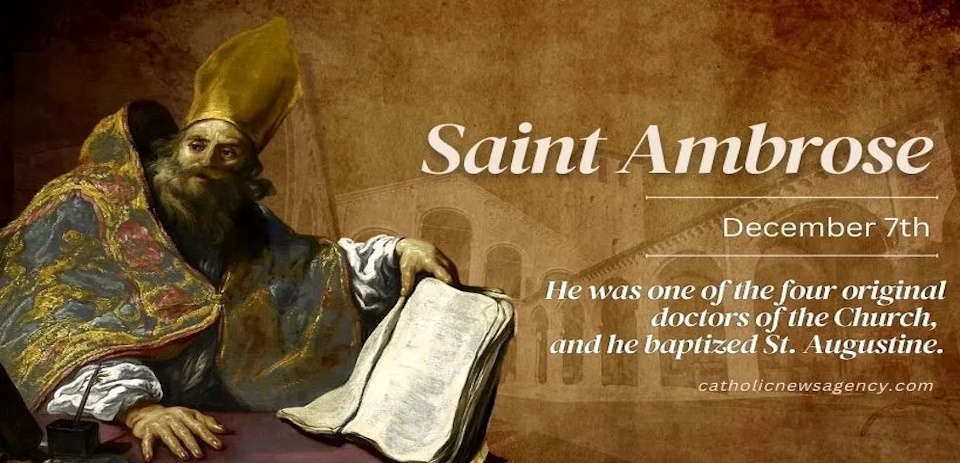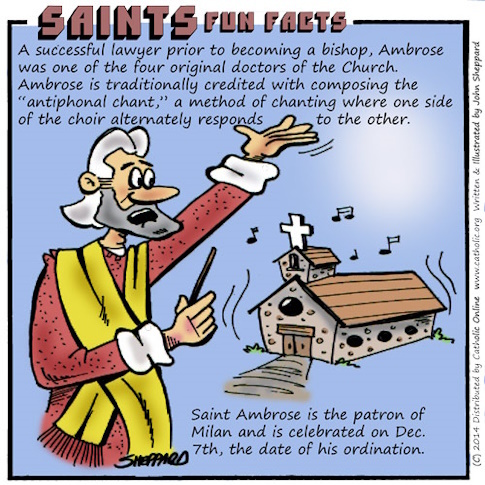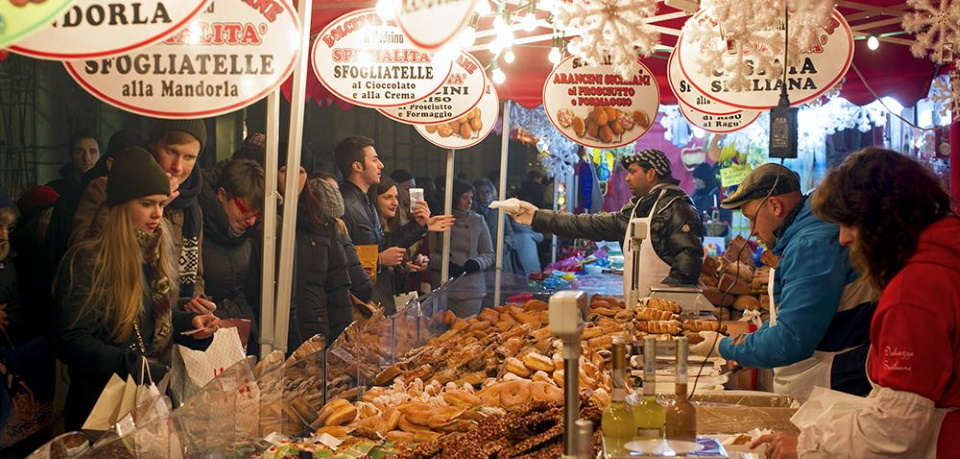7th December - St. Ambrose
Written by Anne Newman 17th December 2019 updated 2023
Saint Ambrose is one of the four original doctors of the Church - the 'honey-tongued doctor'.
Ambrose was born around 340 AD to a Roman Christian family. He grew up with his siblings, Satyrus and Marcellina, in Trier, then in Gaul and now Germany's oldest city.
The name Ambrose means immortal or divine, and is rooted in ambrosios. Ancient Greek myths relate that ambrosia is the food or drink of the Greek gods. Originally a wood nymph.

It is said that when Ambrose was just a baby, a swarm of bees landed on his face and left behind a drop of honey. His father took this as a sign that Ambrose would become someone great with a wonderful sense for speaking.
When Ambrose's father died, Ambrose went to Rome, where he studied law, literature and rhetoric. Like his father before him, he received a place on the council, as Governor of Liguria and Emilia around 372 and remained there until 374 when he became the Bishop of Milan.
Ambrose was known for his Nicene beliefs (Trinitarianism - which is the belief that God, Jesus Christ, and the Holy Spirit are all one and the same) , but Arians (Christian heretics who believed that Christ is not truly divine but a created being) also favoured him because he had previously shown charity in theological matters. However, being neither baptized nor trained in theology, Ambrose refused to become the next bishop. He ran and attempted to hide, but his colleague gave him up.
Within a week Ambrose was baptized, ordained and duly consecrated bishop of Milan on December 7th, 374. As bishop, he donated all of his land and gave his money to the poor which made him widely popular and often times more politically powerful than even the emperor.
He studied theology with Simplician, a presbyter of Rome. Using his new education, along with his knowledge of Greek, he took the time to study the Old Testament and Greek authors. He used all of this while preaching; his abilities impressed Augustine of Hippo, who previously thought poorly of Christian preachers. After meeting Ambrose, Augustine re-evaluated himself and was forever changed. In 387, Ambrose baptized Augustine.
According to legend, Ambrose tried to put an end to Arianism in Milan. He often attempted to theologically dispute their propositions. The Arians appealed to many high position leaders, but Ambrose was able to stay one step ahead. The Arians increasing strength proved troublesome for Ambrose.

Around 386, the Emperor Valentinian II and his mother, Justine, along with many other people, including clergy, lay-persons, and military, professed Arianism. They demanded some of the churches in Milan be dedicated to them, one in the city and one in the suburbs. Ambrose refused and was ordered to appear in front of the council, where he then spoke eloquently in defense of the Church.
If you demand my person, I am ready to submit: carry me to prison or to death, I will not resist; but I will never betray the church of Christ. I will not call upon the people to succour me; I will die at the foot of the altar rather than desert it. The tumult of the people I will not encourage: but God alone can appease it.
The imperial court did not like Ambrose's religious principles, but he was sought out to help and speak to Magnus Maximus to prevent him from descending upon Italy. Ambrose was successful. During a second attempt, the embassy was not successful and Milan was taken. Justine and Valentinian II fled, but Ambrose stayed. He is credited with doing a great service to the sufferers during this time.
In 385, Ambrose once again refused handing over the Portian basilica to Valentinian II, this time to be used by Arian troops. A year later, Ambrose was again ordered to hand over the church for Arian use. Ambrose and his congregation barricaded themselves within the church walls until the imperial order was rescinded.
Thanks to Fun Facts - Catholic.org for this one:
Two years after Theodosius died Ambrose died on April 4, 397. His body remains in the church of St. Ambrogio in Milan.
St. Ambrose was generous to the poor. To him, giving to the poor was just a repayment of God's resources, which were intended for everyone equally
.He introduced reforms in the order and manner of public worship. He was known for his "liturgical flexibility that kept in mind that liturgy was a tool to serve people in worshiping God, and ought not to become a rigid entity that is invariable from place to place."
He is the patron saint of bee keepers, beggars, learning and Milan. On his feast day is the Oh Bej! Oh Bej! street market. The streets near the piazza Sant Ambrogio are busy with people trying an assortment of different local food and drinks, as well as a market of arts and crafts stalls.






